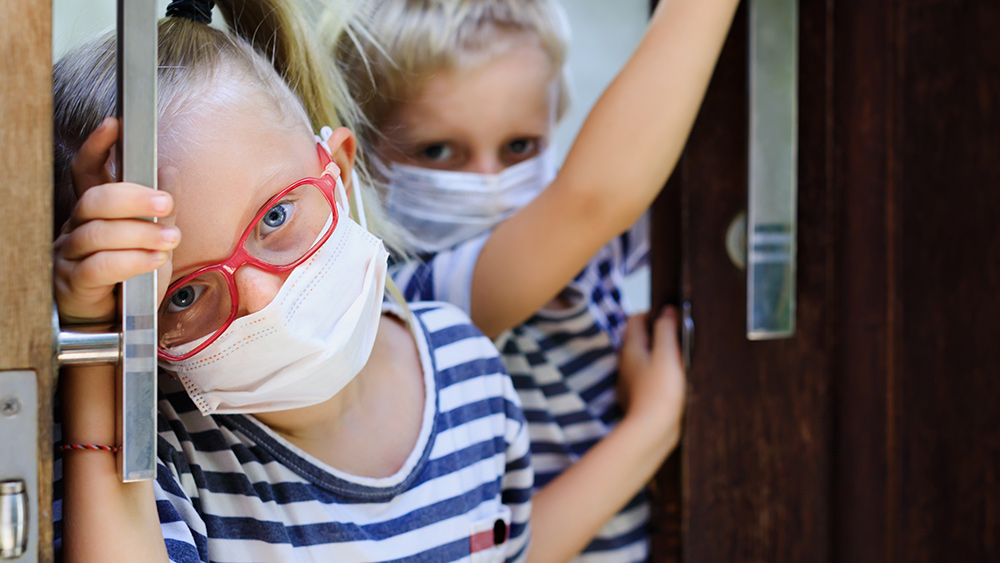
While the actual increase in risk is relatively modest – 7.1 percent of those with depression are convicted of violent crimes, compared to 3.6 percent of those who are not suffering with depression – the medical community and mainstream media are likely to view the study as a greenlight to medicate even more young people with dangerous antidepressant medications like serotonin-reuptake inhibitors (SSRIs). (Related: Stay up-to-date on the most important developments in mental health at Psychiatry.news)
The research team examined the links between adolescent depression and violent acts in later life for three sample groups from the Netherlands, Finland and the United Kingdom. Both self-reporting and clinical diagnoses were included for data purposes, and the violence was measured in terms of actual official convictions as well as self-reported incidents of violence.
"We know that high rates of depression have been reported among adolescents in juvenile detention and correctional facilities (e.g.,11% in boys and 29% in girls)," said Dr. Rongqin Yu, a lead researcher on the team. "However, the longitudinal link between depression and violence was unclear. Our longitudinal design allowed us to take into account previous violence, enabling us to test whether adolescent depression is associated with changes in violence over time. We found a consistent pattern of increased risk of later violence across samples. Both depression and violence are prevalent in adolescents and young adults; our findings indicate the importance of early detection and treatment of depression." [Emphasis added]
While it is important to recognize that untreated feelings of unhappiness and isolation among young people can lead to violent acts in adulthood, the “early detection and treatment of depression” should not involve the use of dangerous antidepressants.
A 2015 article in The New York Times reported that, contrary to the manufacturing company’s own safety studies, an independent analysis of the SSRI drug Paxil, published in the British Medical Journal, found that it is neither safe nor effective for teenagers.
The Times also noted that since the early 2000s, antidepressant drugs have had to carry strong warnings about increased risk of suicide for children, teens and young adults. They are only considered “safe” (by the FDA, at least) in those over the age of 25.
Experts have also been warning the public for years that thousands of people on SSRIs, or weaning off them, have committed suicide and other violent acts, including mass shootings.
Furthermore, a 2016 study published in the journal The Lancet, which compared the 14 most commonly prescribed antidepressants, including Prozac (fluoxetine), Effexor (venlafaxine) and Lexapro (escitalopram), found that only fluoxetine worked better than placebo.
In other words, these drugs, which alter the chemistry of the brain and carry serious side effects, are totally useless, anyway!
This does not mean that the JAACAP study should be ignored and vulnerable adolescents left to deal with feelings of overwhelming sadness. Families should be wide awake to the signs and symptoms that one of their children might be battling depression and be quick to take action, including getting help from a psychologist trained in cognitive behavioral therapy, if necessary.
Most young people really love music, and this love can also be harnessed in the treatment of depression. A 2016 article published in the Journal of Child Psychology and Psychiatry, which examined the effect of music therapy on 251 children between the ages of 8 and 16, found that it boosts self-esteem and can help young people cope with depression.
“Music therapy has often been used with children and young people with particular mental health needs, but this is the first time its effectiveness has been shown by a definitive randomised controlled trail [sic] in a clinical setting,” said Ciara Reilly, chief executive of the music therapy charity Every Day Harmony. “The findings are dramatic and underscore the need for music therapy to be made available as a mainstream treatment option.” (Related: Discover 15 other tips to help your child fight depression.)
Sources include:
Please contact us for more information.






















